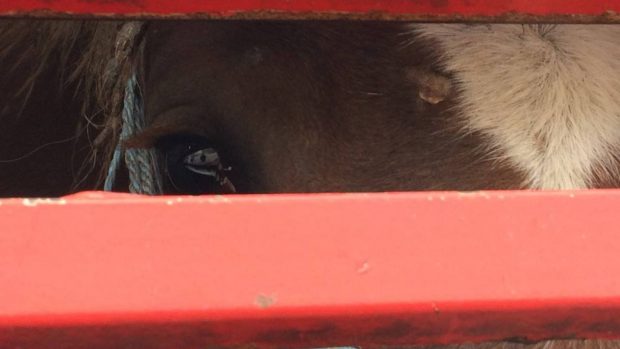A proposed ban of horse slaughter in the United States is scheduled for a House of Representatives vote tomorrow (Thursday).
The Bill, compiled by Congressman John Sweeney of New York State, seeks to amend the Horse Protection Act of 1970 by prohibiting the slaughter of horses in the US for consumption overseas. If successful, the new law would forbid the transport or sale of horses for meat, effectively halting the US horse meat market.
Last month the American Horse Slaughter Prevention Act got its first-ever congressional hearing. If tomorrow’s vote is in favour of the new amended bill, it will then progress to the Senate.
Opinions in the USA are divided as to whether horse slaughter should be banned. Last month the Masters of Foxhounds Association of North America (AMFHA) added its voice to the controversial debate, telling H&H the most humane and economic approach was to oppose change.
“We are very much against this Act [American Horse Slaughter Prevention Act], which would be very bad for horse welfare,” said Colonel Dennis Foster of the MFHA, adding that Kentucky and New York were the two states pushing the Bill.
Meanwhile the National Horse Protection Coalition has been established with the aim of passing the Federal legislation to put an end to the horse slaughter industry. Supporters include two-time Kentucky Derby winning horse trainer Nick Zito and film star Bo Derek.
Zito said: “Slaughtering a horse is beyond comprehension for most Americans, but the process that occurs prior is equally cruel and inhumane. Sadly, these horses are transported, often without food or water, for up to 28hr, to one of the three remaining US slaughter facilities.”
Over the past 12 years the US horsemeat industry has fallen dramatically — down from 329,000 horses slaughtered for meat to about 90,000 last year. But despite the declining market, those opposed to a ban claim it will create a glut of unwanted horses and breed cruelty and neglect.
“There is no stipulation in the legislation to make a horse’s life better if it is not slaughtered. There is already not enough funding for rescue facilities,” said Tim Case of the American Quarter Horse Association.
According to Colonel Foster the country’s rescue operations are over subscribed and costing tax players millions of dollars. He said California’s ban on horse slaughter two years ago resulted in many horses being taken over the border to Mexico for slaughter, where welfare conditions were “not as rigorous.”
The American Equine Veterinarian Association together with 57 horse associations and the International League for the Protection of Horses (ILPH) share the AMFHA’s majority view; according to Col Foster “a wilful minority” of members support a ban.
“The removal of slaughter houses in countries such as the USA has the potential of resulting in serious welfare concerns,” said an ILPH spokesperson. “The ILPH is concerned with the welfare of the living horse. After the horse has been euthanized it is the owner’s decision what to do with the carcass. However the journeying distance and the welfare issues concerning this need to be addressed.”




